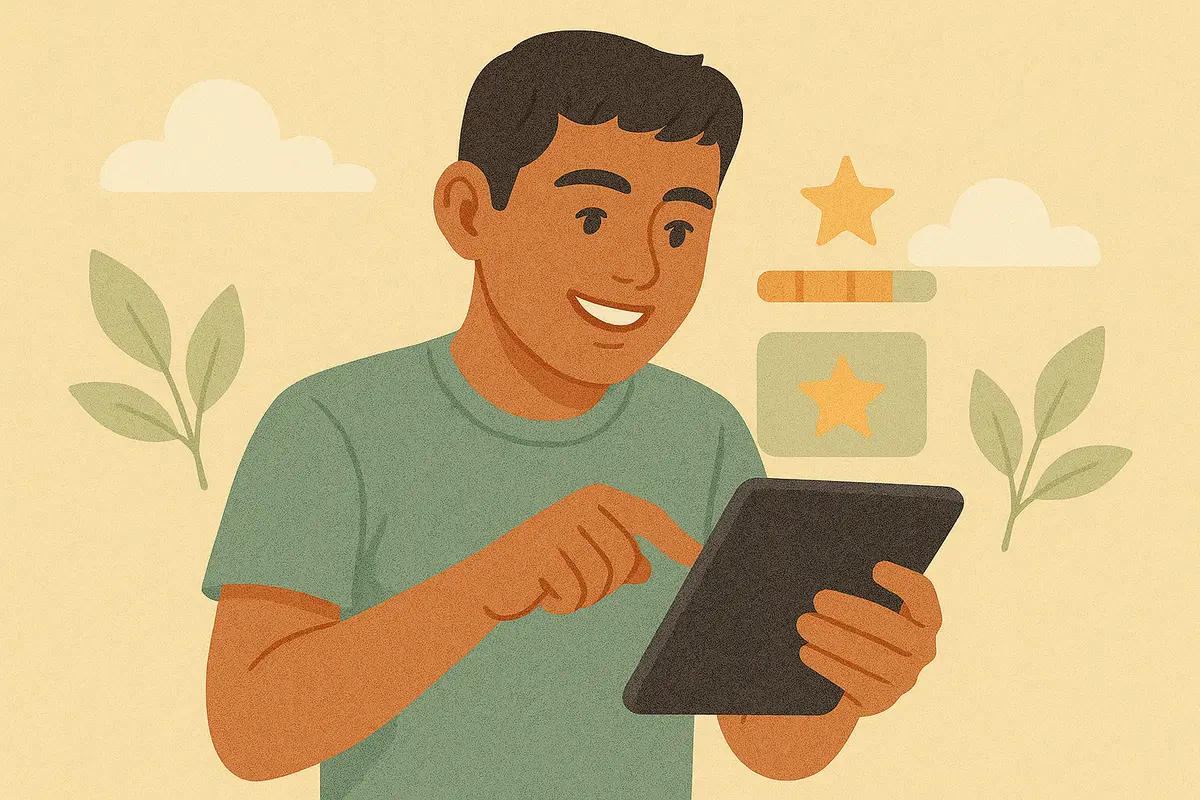A gamified skill practice challenge organizes anxiety-management techniques into progressive, game-like levels with tracking, rewards, and incremental challenges, building emotional regulation skills through engaging 5-10 minute daily practices.

Feeling stuck in cycles of anxiety avoidance where practicing emotional regulation skills feels overwhelming and burdensome? Knowing which coping strategies could help but struggling to maintain motivation for consistent practice, especially when life gets stressful and you need these skills most? The problem isn't lack of willpower—it's that traditional anxiety management often feels like clinical homework rather than engaging activities.
This evidence-based approach transforms overwhelming anxiety management into an engaging, achievable journey through game-like challenges with clear milestones and rewards. A gamified skill practice challenge organizes anxiety-management techniques into progressive levels that build genuine confidence while reducing resistance to the work itself. Research demonstrates that gamified mental health interventions significantly improve engagement and outcomes.
Gamified skill practice operates through multiple evidence-based psychological mechanisms that enhance motivation, reduce anxiety, and build lasting emotional regulation capabilities. The fundamental effectiveness stems from self-determination theory, which identifies autonomy, competence, and relatedness as core drivers of intrinsic motivation essential for sustained behavioral change.
The approach leverages what researchers call "operant conditioning" through systematic positive reinforcement. By providing immediate rewards for anxiety management practice, gamification strengthens the likelihood of continued practice while creating positive associations with previously avoided activities. This is particularly powerful for anxiety, where avoidance behaviors are naturally reinforced by short-term relief.
One critical mechanism is the breakdown of overwhelming goals into what psychologists term "implementation intentions" - specific, manageable if-then plans that significantly improve goal achievement. Rather than vague intentions like "manage anxiety better," gamification creates specific challenges like "practice 4-7-8 breathing for 3 minutes after lunch."
The progress tracking component works through goal-setting theory, which demonstrates that specific, measurable goals with feedback systems produce significantly better performance than general intentions. Visual progress indicators provide continuous feedback that maintains motivation and creates momentum for continued practice.
Gamification also addresses what researchers call "exposure therapy principles" by creating graduated exposure to anxiety-provoking situations or skills in a controlled, manageable way. This systematic desensitization reduces anxiety responses through habituation while building confidence through successful completion of challenges.
The reward system leverages dopamine pathways associated with achievement and progress. Neuroscience research shows that anticipating and receiving rewards for goal-directed behavior strengthens neural pathways associated with motivation and goal pursuit, making continued practice more automatic over time.
From a cognitive behavioral perspective, gamification helps interrupt negative thought patterns about anxiety management by providing concrete evidence of capability and progress. Each completed challenge serves as behavioral evidence against thoughts like "I can't handle anxiety" or "I'm not good at coping skills."
The incremental difficulty progression works through what psychologists call "zone of proximal development" - the sweet spot between too easy (boring) and too difficult (overwhelming) where optimal learning occurs. This ensures continuous growth without triggering anxiety about failure or inadequacy.
Additionally, the playful, game-like framing activates what researchers term "broaden-and-build theory" of positive emotions. Positive emotional states broaden cognitive flexibility and build psychological resources, making anxiety management practice more effective and emotionally sustainable.
The social sharing component, when included, leverages social learning theory by providing modeling, encouragement, and accountability that enhance motivation and skill development beyond individual efforts alone.
"I lose motivation after initial excitement wears off" - This is common with gamification. Refresh your reward system, adjust challenge difficulty, or introduce social elements like accountability partners. Research shows that varied rewards and social support maintain long-term engagement.
"The challenges feel too artificial or disconnected from real anxiety" - Adjust challenges to more closely mirror your actual anxiety triggers and situations. The most effective gamified practice directly addresses real-world emotional regulation needs rather than abstract skill building.
"I get anxious about completing challenges perfectly" - This suggests the performance pressure is too high. Reduce challenge difficulty, emphasize learning over execution, and include "partial completion" rewards to maintain motivation without triggering additional anxiety about the practice itself.
"My anxiety is too severe for structured challenges" - During acute anxiety periods, simplify to very basic challenges like "take three deep breaths" or temporarily pause gamification in favor of crisis management. Resume when emotional resources are available for structured practice.
"I don't know what rewards would actually motivate me" - Experiment with different reward types: sensory pleasures, social activities, achievement recognition, or progress celebrations. Pay attention to what naturally motivates you in other life areas and adapt those elements to anxiety management practice.
"I complete challenges but don't see anxiety improvement" - Ensure challenges address your specific anxiety patterns and triggers. Consider whether you need professional support to learn more effective techniques before gamifying practice, or whether expectations about timeline need adjustment.